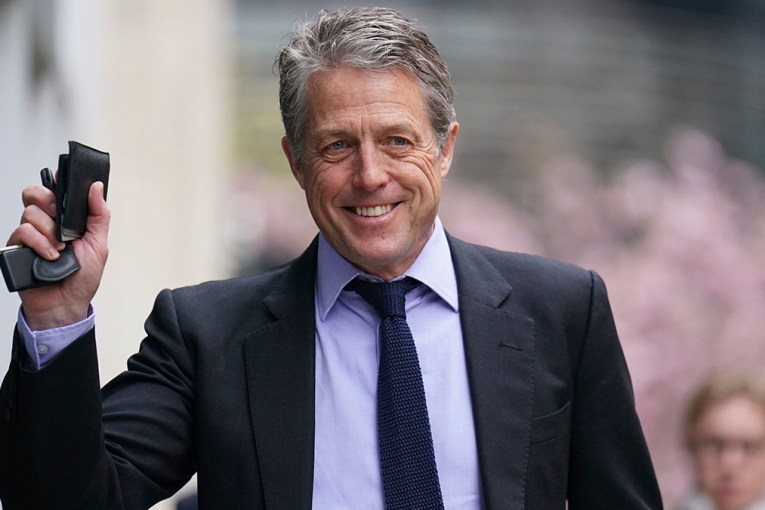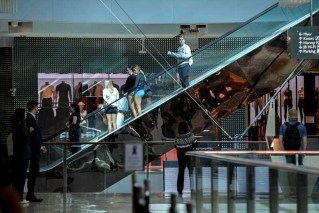Paul Bongiorno: A budget of fantasy figures and questionable commitments

Let’s face it, all budgets are political theatre based on assumptions prepared by the treasury to suit the plot devised by their political masters.
This is not to say the plot isn’t influenced by all sorts of other factors, like imperatives foisted on a government by things like pandemics and their own mistakes.
John Howard once told a bunch of journalists over social drinks that government is flying by the seat of your pants – it’s how you do it that counts.
The biggest assumption of Tuesday night’s budget will be that Australia’s international borders will open next year – again an example of an assumption that could otherwise make the numbers fanciful or, at the very least, wishful thinking.
Last year’s budget assumed the borders would be open by now.
It also assumed at least four million Australians would have received their first vaccine jab.

Treasurer Josh Frydenberg must frame the federal budget within the realities of the pandemic. Photo: TND
Treasurer Josh Frydenberg on Sunday said we are all at the mercy of the pandemic that is still raging internationally, after epidemiologists warned it’s only a matter of time before it was “absolutely inevitable” that the virus would spread within Australia.
They are warnings that underscore the urgency of the Commonwealth better addressing the vaccine rollout and quarantine arrangements.
If the budget declines to address either in a meaningful way, it will have failed the fundamental task of keeping Australians safe and relatively prosperous.
The much-respected Deloitte Access Economics Budget Monitor documents how so many of last year’s official forecasts and even revisions as late as five months ago were wrong.
By now, according to the 2019 “Back in the Black” budget, we would be luxuriating in budget surpluses.
The 2020 forecasts for the economy were much bleaker than the reality, thanks in no small part to the government embarking on a spendathon of gargantuan proportions and iron ore prices four times higher than predicted.
Mr Frydenberg assures us there will be “no pivot to austerity” and the overdue response to the Aged Care Royal Commission will be the centrepiece on Tuesday night and cost “more than $10 billion over the forward estimates.”
The Royal Commission recommended $10 billion a year, so anything less than $40 billion over four years will fall well short and only confirm the government’s much-less-than-adequate response to the “neglect” the inquiry starkly documented.
Of course, as many in the sector rightly point out money isn’t the only issue. Structural reform is, including significantly regulating or ending the way private operators put their profits far ahead of their aged clients.
Even if we allow the Treasurer and his advisers the indulgence of taking their forecasts seriously, the question remains how is he going to pay for it all.
The simple uncontested answer is by borrowing and there is considerable weight to the argument made by Labor – but for decades rejected by the Liberals – that this borrowing can go a long way to help the economy fix itself, but no one thinks this will be enough.
Already there are calls for Mr Frydenberg to revisit Scott Morrison’s medium-term budget repair policy framework when he was treasurer and that was to deliver “sustainable budget surpluses building to at least 1 per cent of GDP as soon as possible”.
But Mr Morrison’s guard rails then were based on a firm austere belief in trickledown economics, the remnants of which can be seen in maintaining the commitment to the 2024 flattening of income tax scales with huge windfalls for the wealthiest top 20 per cent of taxpayers.
The Sydney Morning Herald described these guard rails as “relatively simple”, such as no new spending without equivalent savings or banking unexpected windfall receipts due to changes in the economy.
Shadow treasurer Jim Chalmers believes the government’s conversion to the wisdom of debts and deficits, if returned, will be short lived.
But both sides of politics will need to grapple with the question of who foots the bill. If the Australia Institute’s latest opinion survey is right, Australians accept the need for adequate taxes to do the job.
The survey found 69 per cent of respondents agree that taxes are what we pay for civilised society.
To put that sentiment to work in Australia we will need real and principled political leadership of the sort President Joe Biden is giving in the United States.
In the meantime the nation waits to see how wisely the Treasurer uses the hundreds of billions of dollars he is borrowing to address not only the crises in aged care but also in mental health, disability, child care and veterans.
Paul Bongiorno AM is a veteran of the Canberra Press Gallery, with 40 years’ experience covering Australian politics








